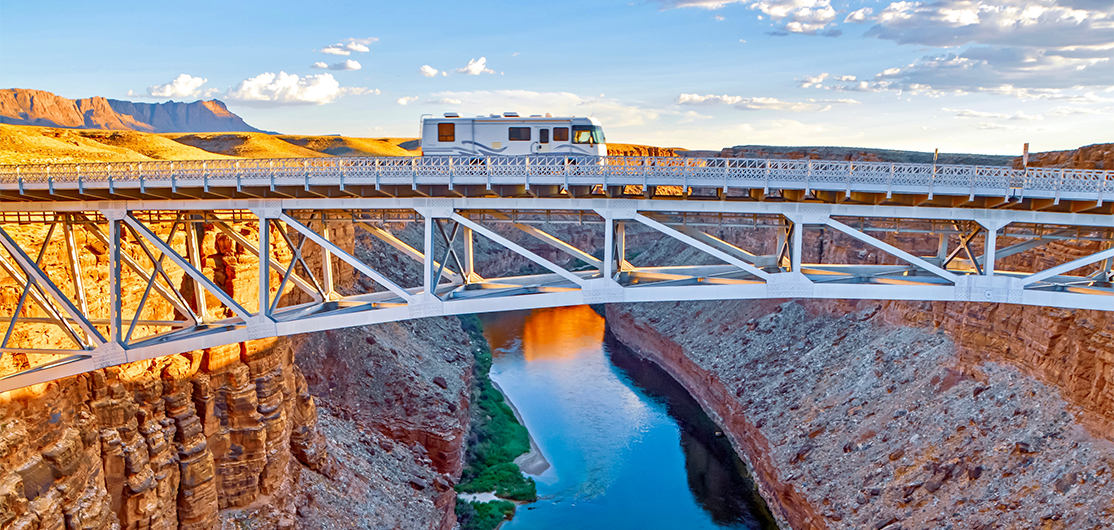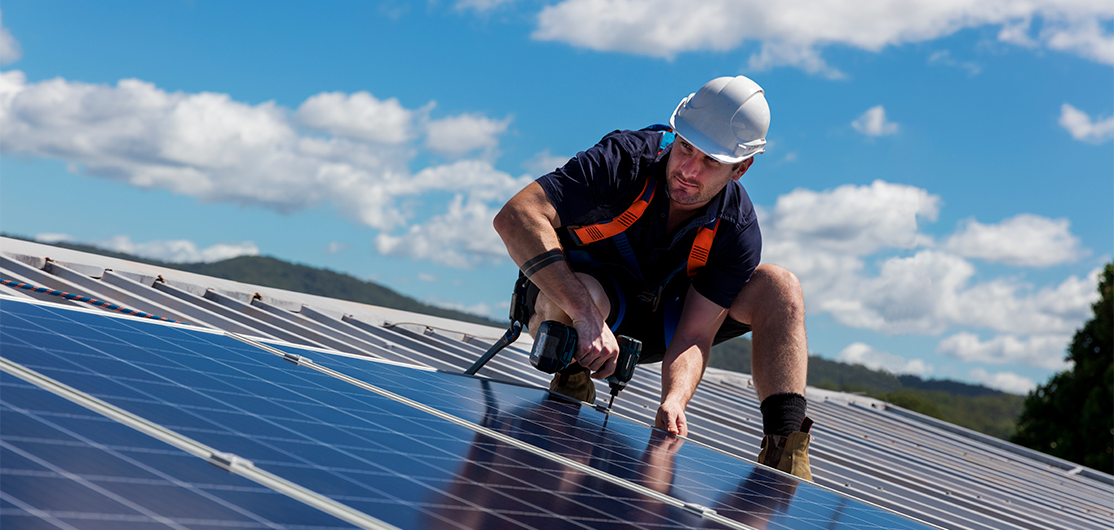 |
4 Things to Consider Before Buying an RV |
|
Whether for local jaunts or a several-week adventure, purchasing a recreational vehicle can provide an unlimited amount of enjoyment for you and your family—particularly during a time where social distancing and contained forms of travel are preferred. It is also a significant financial investment, and as with any financial commitment, education is key to making the best decision. Here are 4 critical questions to ask when considering the purchase of an RV. |
| 1. How Big of an RV? |
|
Consider what classification is the right fit for you. RV Classification can be confusing, and with each step up in size, although you will have more rooms and amenities, you are almost certainly going to pay more. Plus, larger RVs tend to require more skills to navigate effectively. Driving Options Towing Options Pro Tip: Unless you are seriously committed to RVing on long extended trips, multiple times per year, then a Class-C trailer is preferred over a Class-A trailer.
|
| 2. Where Will Your RV Rest? |
|
You have two options here: your driveway/yard or a storage center. Many communities in Southern California have HOAs that restrict RVs on property, so check your Covenants, Conditions & Restrictions (CC&Rs) before purchasing. If you plan to store the RV, you’ll want to consider the additional cost of doing so; usually ranging between $200-$500 a month. Pro Tip: If you plan to house the RV on your property, do precise measurements before committing—this includes accounting for any eaves and/or overhangs, and measuring no further than the sidewalk easement.
|
| 3. New vs. Used |
|
RVs that are over 10 years old typically cannot be financed; and as a result, you will need to pay cash directly to the seller. For this reason, most RV Retailers do not carry old RVs. However, if you decide to take this route, you can hire a specialist to come inspect the RV with you—a few hundred dollars could save you thousands in repairs. In addition to all the bells and whistles, newer RVs are eligible for financing. Plus, the newer they are, the lower the rate typically is. Pro Tip: If you purchase an older RV, inspect the roof for any sign of leakage. Much like houses, once water gets through the roof and into the walls it will be a hidden curse on your ownership plans…unless you love self-renovating, in which case, you might score a deal.
|
| 4. Cash vs. Financing |
|
Unlike a trip to Hawaii where the money is spent and only to return in the form of sunset selfies and memories, an RV is an asset and an opportunity to travel, while keeping your finances flexible and cash accessible. If you pay cash for your RV, the only way to is to liquidate or sell it; which might take some time and potentially put you in a desperate seller position. If your RV is financed and you want to sell it, you will be far more likely to wait for a “great offer” and not just the “best offer”. Pro Tip: An older vehicle with low mileage can be a good option, but be sure that the low mileage does not also mean the vehicle was neglected. An RV that sat around unused for years can develop problems. You can pull the Carfax report for about $40 to see how mileage was accumulated over the years.
|
|
Interested in financing an RV through Wheelhouse Credit Union? Check out your options here. |
Financial Tips
 |
Protect Your Independence |
|
For most of us, having our own car gives us a sense of freedom. It allows us to go where we want, when we want. Having a car, however, can also be costly – especially if you have mechanical issues, lose your source of income but still have car payments, and/or if your car is stolen or totaled in an accident. That’s when Payment Protection, Mechanical Repair Coverage (MRC) and Guaranteed Asset Protection (GAP) come in handy and can help protect your independence. And the great news is that credit unions, like Wheelhouse, offer these products at a very low-cost compared to dealers. Here’s how they work: |
| Payment Protectionx |
|
Payment Protection provides relief from the financial burden of delinquency, default, or foreclosure if death, disability or involuntary unemployment should unexpectedly happen to you. Payment Protection will pay your loan payments, relieving you and your family’s worries about paying loans during a time of reduced income. |
| Guaranteed Asset Protectionx |
|
Guaranteed Asset Protection (GAP) protects your vehicle loan, should your car get stolen or totaled in an accident, GAP will help pay the difference between what you owe and the value of your vehicle. |
| Mechanical Repair Coveragex |
|
Mechanical Repair Coverage (MRC) can help deflect the risk of costly repairs. With different coverage levels and deductibles to choose from, you can find the plan that best fits your budget. MRC can come with rental reimbursement, emergency roadside assistance, and more. |
|
What’s also great is that these products can be applied to other types of consumer loans, including credit cards, recreational vehicle and motorcycle loans, to name a few. Add protection to your loan when you apply through Wheelhouse today. |
| Speak to a Wheelhouse Representative About Your Options |
| xPurchase of Payment Protection, Mechanical Repair Coverage (MRC) and Guaranteed Asset Protection (GAP) is voluntary and will not affect an application or the terms and conditions of a loan. Payment Protection, MRC and GAP are not insured by the NCUA nor an obligation or guaranteed by Wheelhouse Credit Union. |

